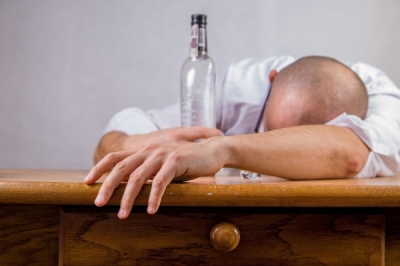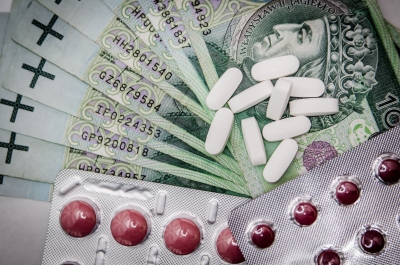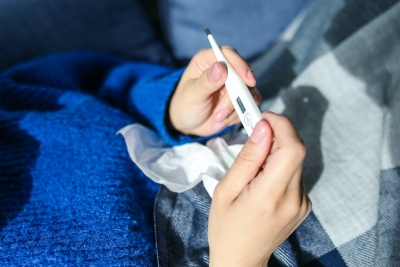Hangover: Causes, Symptoms, and Scientific Updates
Hangover: Causes, Symptoms, and Scientific Updates
Hangover is defined as the combination of physical and mental symptoms that occur after an episode of alcohol consumption, usually beginning when blood alcohol concentration (BAC) approaches zero. These symptoms include headache, nausea, fatigue, dizziness, light sensitivity, mood changes, irritability, and impaired concentration. It is estimated that 78% of social drinkers experience hangovers, and this rate can reach up to 90% among so-called heavy drinkers.¹
Pathophysiology of the Hangover
The hangover is a multifactorial condition. Acetaldehyde, the main metabolite of ethanol, is a highly toxic and inflammatory substance involved in the most intense hangover symptoms. Other contributing mechanisms include dehydration (due to alcohol’s diuretic effect), immune system changes, hypoglycemia, sleep disturbances, and gastrointestinal irritation.²
Recent evidence also shows the activation of inflammatory cytokines (such as IL-6 and TNF-α) during alcohol intoxication, which affects the central nervous system and contributes to symptoms like lethargy, pain, cognitive changes, and mood fluctuations—even after alcohol has been eliminated from the bloodstream.³
Type of Alcoholic Beverage and Congeners
Dark-colored drinks, such as whiskey, brandy, and red wine, contain higher concentrations of congeners—byproducts of the fermentation process such as methanol and acetone. Studies show that these substances are associated with greater severity and duration of hangover symptoms because they prolong the toxic effects of alcohol metabolism.⁴
However, it is important to highlight that the main determinant of a hangover is still the total amount of alcohol consumed. The intake of high doses of ethanol, regardless of the type of beverage, is directly related to the intensity of symptoms the next day. Thus, even drinks with low congener content can cause significant hangovers when consumed excessively.
Individual Vulnerability Factors
Susceptibility to hangovers varies between individuals. Genetic traits, such as variations in the activity of the ALDH2 enzyme (responsible for metabolizing acetaldehyde), directly influence the severity of symptoms. Other relevant factors include sex, age, nutritional status, mental health, and sleep patterns.
A recent 2025 study published in the Journal of Clinical Medicine investigated the relationship between frequency and intensity of hangovers, showing that individuals who report more frequent hangovers tend to experience more intense symptoms. This relationship remained significant even after controlling for variables such as amount of alcohol consumed, age, sex, and body mass index.⁵
These findings reinforce the fact that the idea of people developing "resistance" to hangovers through frequent drinking is a myth. Physiological responses such as inflammation, dehydration, and glucose drop still occur—even if the individual reports less discomfort. Normalizing the hangover as something “tolerable” may even mask risky drinking patterns.
Is There a Treatment?
Despite various popular approaches, there is no scientifically proven treatment to cure a hangover. Some substances such as antioxidants (e.g., N-acetylcysteine) or herbal extracts are under investigation,⁶,⁷ but there is still no robust evidence for clinical recommendation. Therefore, preventive measures remain the most effective:
- Avoid excessive alcohol consumption;
- Eat before and during drinking;
- Stay hydrated;
- Get adequate sleep after drinking.
In cases of severe or recurring hangovers, it is important to assess for patterns of risky use or signs of alcohol use disorder. In such cases, it is recommended to seek professional guidance from a physician or mental health specialist, who can assess the drinking pattern, provide appropriate support, and, if necessary, suggest harm-reduction strategies or refer for treatment.
References:
- Verster JC, Penning R. Alcohol hangover symptoms and their contribution to overall hangover severity. Alcohol Alcohol. 2010;45(6):603–612.
- Swift R, Davidson D. Alcohol hangover: mechanisms and mediators. Alcohol Health Res World. 1998;22(1):54–60.
- Penning R, van Nuland M, Olivier B, Verster JC. The pathology of alcohol hangover. Curr Drug Abuse Rev. 2010;3(2):68–75.
- Rohsenow DJ, Howland J, Arnedt JT, et al. Intoxication with bourbon versus vodka: effects on hangover, sleep, and next-day neurocognitive performance in young adults. Alcohol Clin Exp Res. 2010;34(3):509–518.
- Rîșniță S, Išerić E, Zijlstra MN, Stock AK, Verster JC. The Relationship Between Alcohol Hangover Frequency and Hangover Severity. J Clin Med. 2025;14(7):2428. https://doi.org/10.3390/jcm14072428
- Podobnik, B., Demšar, L., Šarc, L., Jerin, A., Osredkar, J., Trontelj, J., Roškar, R., & Brvar, M. (2024). N-Acetylcysteine Ineffective in Alleviating Hangover from Binge Drinking: A Clinical Study. Toxics, 12(8), 585. https://doi.org/10.3390/toxics12080585
- George, A., Udani, J. K., & Yusof, A. (2019). Effects of Phyllanthus amarus PHYLLPROTM leaves on hangover symptoms: a randomized, double-blind, placebo-controlled crossover study. Pharmaceutical biology, 57(1), 145–153. https://doi.org/10.1080/13880209.2019.1585460






